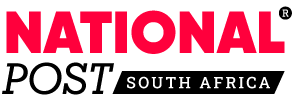It’s been a rough year for Elon Musk, with his net worth taking a significant hit due to a series of public mistakes. The biggest blow came when Tesla’s stock price crashed after Musk tweeted that he was considering taking the company private at $420 per share, a move that was later revealed to be baseless.
In addition to the Tesla debacle, Musk also faced criticism for his handling of the COVID-19 pandemic, with many accusing him of downplaying the severity of the virus and failing to adequately protect his employees.
But it wasn’t just Musk’s actions that caused his net worth to plummet. The ongoing trade war with China and the overall market downturn also played a role in the decline of Tesla’s stock price.
Despite the setbacks, Musk remains a major player in the tech industry and it’s likely that he will bounce back from these challenges. However, it’s clear that his public mistakes have cost him dearly, with estimates putting the total cost at hundreds of billions of dollars.
It remains to be seen how these events will affect Musk’s future endeavors, but for now, it’s clear that the cost of his mistakes has been significant.
Elon Reeve Musk FRS (/ˈiːlɒn/ EE-lon; born June 28, 1971) is a business magnate, industrial designer, and engineer. He is the founder, CEO, CTO, and chief designer of SpaceX; early investor, CEO, and product architect of Tesla, Inc.; founder of The Boring Company; co-founder of Neuralink; and co-founder and initial co-chairman of OpenAI. A centibillionaire, Musk is one of the richest people in the world.
Musk was born to a Canadian mother and South African father and raised in Pretoria, South Africa. He briefly attended the University of Pretoria before moving to Canada aged 17 to attend Queen’s University. He transferred to the University of Pennsylvania two years later, where he received dual bachelor’s degrees in economics and physics. He moved to California in 1995 to attend Stanford University but decided instead to pursue a business career, co-founding web software company Zip2 with his brother Kimbal. The start-up was acquired by Compaq for $307 million in 1999. Musk co-founded online bank X.com that same year, which merged with Confinity in 2000 to form PayPal and was bought by eBay for $1.5 billion in October 2002.
In 2002, Musk founded SpaceX, an aerospace manufacturer and space transport services company, of which he is CEO, CTO, and lead designer. In 2004, he joined electric vehicle manufacturer Tesla Motors, Inc. (now Tesla, Inc.) as chairman and product architect, becoming its CEO in 2008. In 2006, he helped create SolarCity, a solar energy services company (now a subsidiary of Tesla). In 2015, he co-founded OpenAI, a nonprofit research company that promotes friendly artificial intelligence. In 2016, he co-founded Neuralink, a neurotechnology company focused on developing brain–machine interfaces, and founded The Boring Company, a tunnel construction company.
Musk has also proposed the Hyperloop, a high-speed vactrain transportation system. A number of successful SpaceX rocket launches, the creation of the first privately funded liquid-propellant rocket to reach orbit (Falcon 1 in 2008), and the first privately funded company to successfully send and return a spacecraft from the International Space Station (Dragon in 2010, 2012, and 2017) have brought Musk much public attention. His work on Tesla Motors and SolarCity has garnered him a number of awards and honors.
Musk has faced controversy due to his erratic behavior and public statements, as well as his companies’ financial and safety performance. In 2018, he was sued by the Securities and Exchange Commission (SEC) for securities fraud and reached a settlement with the SEC, agreeing to step down as Tesla’s chairman and pay a $20 million fine. However, he remains CEO of Tesla and continues to be a major figure in the company.





